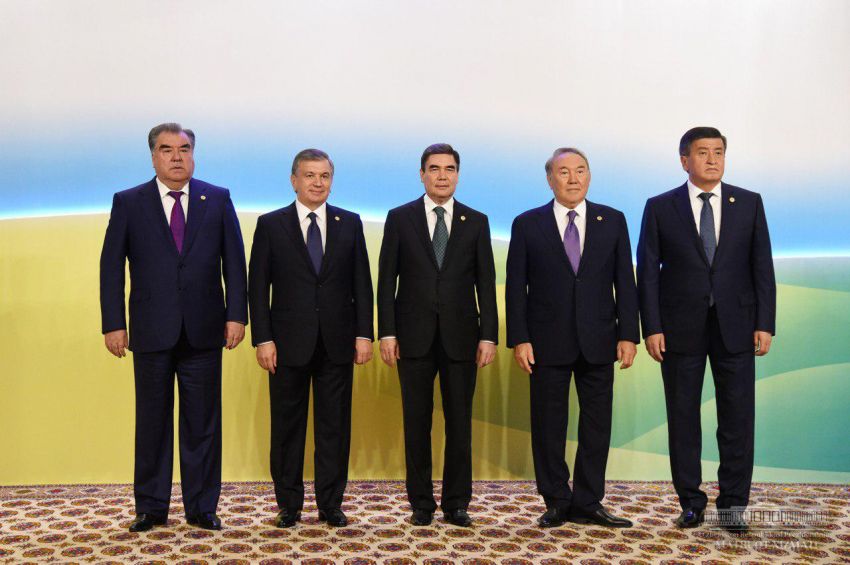
The Government portal of the
Republic of Uzbekistan
Summit of Heads of the Founder States of the International Fund for Saving the Aral Sea has started
2018-08-24 | Politics
Meeting of the Council of Heads of the Founder States of the International Fund for Saving the Aral Sea has started in Avaza tourism zone in the city of Turkmenbashi.

Heads of the Founder States of the IFAS held a meeting in a narrow format. President of the Republic of Uzbekistan Shavkat Mirziyoyev, President of Turkmenistan Gurbanguly Berdimuhamedov, President of the Republic of Tajikistan Emomali Rahmon, President of the Republic of Kazakhstan Nursultan Nazarbayev, President of the Kyrgyz Republic Sooronbay Jeenbekov attended the meeting.
Issues of improving activities of the fund, improving the environmental situation in the region, coordinated water resources management, strengthening cooperation of Central Asian countries in this direction were discussed at the meeting.
The International Fund for Saving the Aral Sea is a regional organization established by Uzbekistan, Kazakhstan, Kyrgyzstan, Tajikistan and Turkmenistan in order to eliminate the ecological crisis and improve the socio-economic situation in the Aral Sea basin. The founder states alternately chair the fund for a three-year period, and the President of the International Fund for Saving the Aral Sea is alternately elected from among the heads of states of Central Asia. Turkmenistan chairs the Fund from 2017 to 2019.
It should be noted that this summit began after the 2009 historic meeting of the fund in Tashkent. At Tashkent meeting of the heads of the founder states, measures were identified on implementation of important efforts for preventing an environmental catastrophe in the region.
Today, when the ecological situation in the Aral Sea region becomes irreparable and the negative impact of which is increasingly expanding, the unity of opinions and views of the heads of states in issues of ensuring social, economic and environmental security is of particular importance.
Over the past period, a number of treaties and agreements on cooperation for addressing complex water management issues in the region, water distribution, joint management, use and protection of water resources in the Aral Sea basin have been signed within the framework of the IFAS.
Uzbekistan implemented large-scale projects on stabilizing the environmental situation, improving the living conditions of the population in the Aral Sea area. About 350 thousand hectares of protective plantings of saxaul and other salt tolerant plants are planted on the drained area of the Aral Sea. The total area of such territories is about 700 thousand hectares.
More than 500 projects have been implemented within the framework of Comprehensive Program of Measures on mitigating the consequences of the Aral catastrophe and development of the Aral Sea region, designed for 2013-2017. More than half of them are of national character.
Investment projects are being implemented on improving the socio-economic situation, improving living standards, mitigating the consequences of the environmental disaster in the Aral Sea area within the framework of the State Program on Development of the Aral Sea region for 2018-2021, adopted on the initiative of President Shavkat Mirziyoyev.
The Aral Sea Region Development Fund has been created under the Ministry of Finance of the Republic of Uzbekistan, to which over 200 billion sums have been allocated. Due to these funds, measures are being taken on improvement of water supply, living conditions of the population of the Republic of Karakalpakstan and Khorezm region.
At the meeting, it was noted that water cooperation in Central Asia has significantly increased, bilateral and multilateral projects on the use and management of water resources in the countries of the region are being implemented. Issues of consolidating the efforts of the Central Asian countries on mitigating the consequences of the Aral problem, saving water and improving the ecological situation in the region, attracting foreign investment in development and introduction of environmentally friendly technologies for the Aral Sea region were discussed.
Source: UzA









